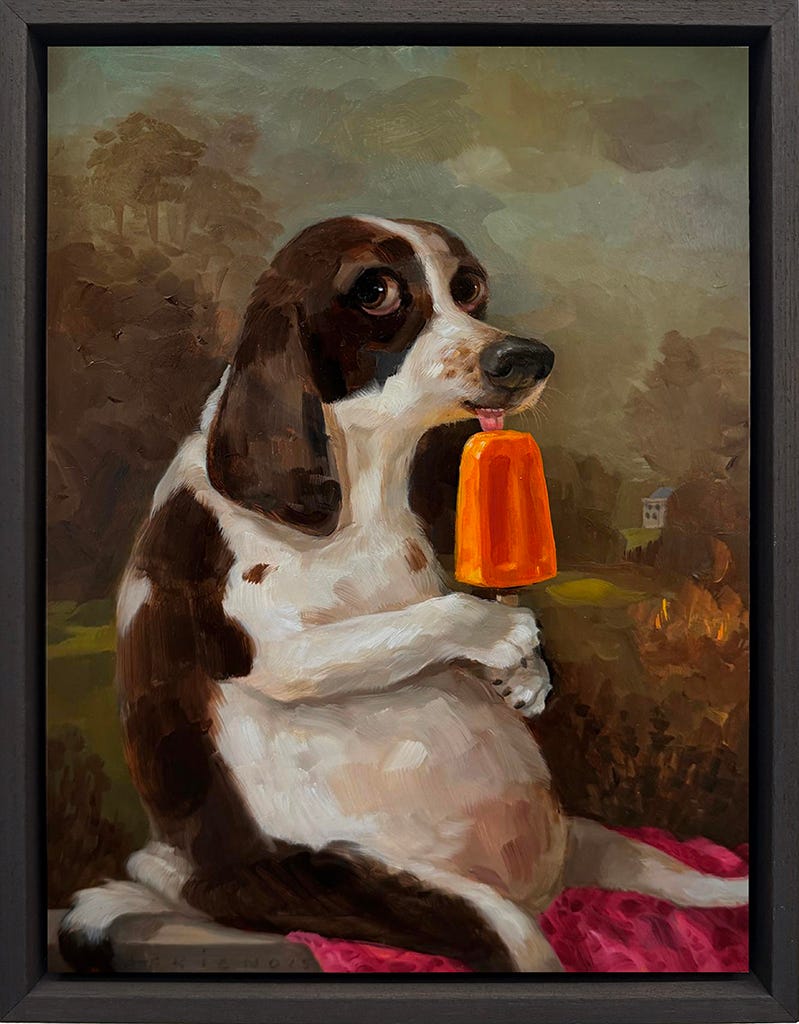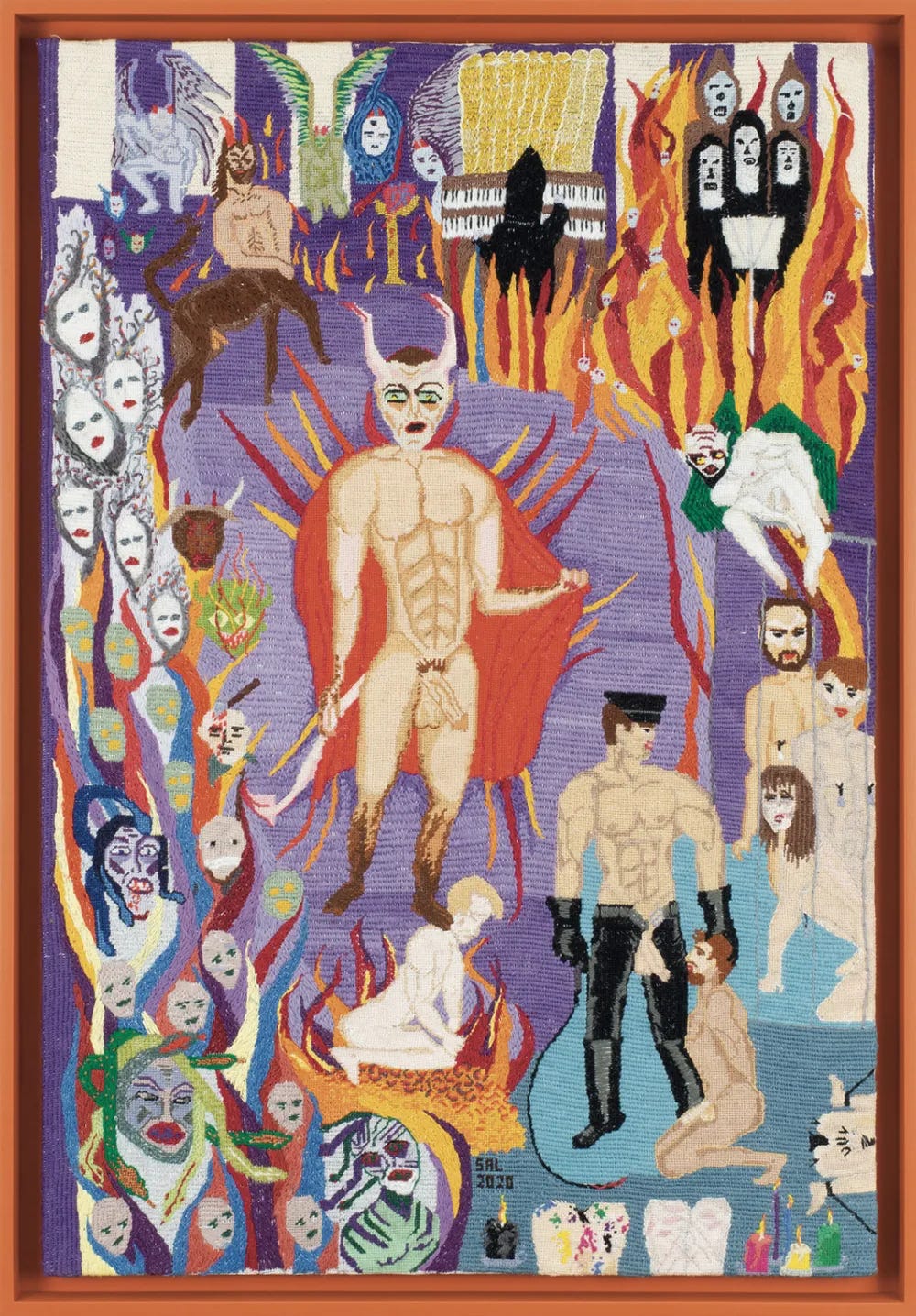I love to write criticism, read criticism, and get criticism. I even love to read criticism about criticism! I have never really spent my own time critiquing criticism, since I would usually rather… write it… but lately when reading takes on the State of Criticism Today, I realized that I have some assumptions about how criticism works that are not actually self-evident. I might have made them up. They might be wrong. They might be obvious. Let’s find out.
In this series I’m going to reverse-engineer my thoughts about criticism to get back to basics. PART 1 (this part) is about the concept of a good review versus a bad review (versus the secret third option). It is also about whether there is a criticism crisis of some kind.
This post is about literary criticism, but I think it’s applicable to most kinds of cultural criticism. Anyway, I’ll talk about the differences between lit crit and art crit in PART 2.
Good Faith, Bad Faith
I can tell when a writer loves or hates a book, but my first question is never whether the takeaway is positive or negative. It’s whether the review was written in “good faith” or “bad faith.” Any yea/nay conclusions are secondary to the question of whether they were arrived at in good faith. This is why I’m often confused about the conflation between someone being “critical” and being “negative.” These are different things.
To take a critical view, to be a critic, means to assess something carefully on its own terms, in contemporary context and in historical context. If the critic does this, and then finds everything wrong with the book, I would not call the review “negative.” I would call it a Good Faith Review that found the book to be bad.
On the other hand, most reviews written in good faith find successes and fails and many things between, not because the critic is copping out or is afraid to say yea/nay, but because most books worth reviewing contain aspects for someone to like or dislike — which vary wildly depending on who’s reading.
A Good Faith Review is one of the best things that can happen to any artist. You can be angry about the conclusions (especially if you suspect they are true) but you have to be grateful if a reviewer arrived at unflattering conclusions by taking your work incredibly seriously. Perhaps they are right, which naturally makes you feel bad, but overall this is a positive thing, because your work commanded attention and care. (And yes, in a country with 7 staff book reviewers, all press is good press.)
To be clear: your work deserves good PR paid for by someone else. Your work deserves good faith reviews. Your work does not deserve a good review.
is right about most authors, who “would rather have intelligent, sustained engagement with their work rather than general, superficial praise.” You want PR, and you want criticism, and that means that you have to be able to tell the difference.Is the book living up to its project? Does it teach the reader how it wants to be read? Is it too boring to care? Is it taking risks, whether or not they pay off? Why does it exist? What does it say about what a book can be? These are questions asked in good faith.
As an author, I am exceedingly grateful if someone takes issue with my writing based on asking those questions based on a) an assessment of what I set out to do and b) an analysis of whether I did it, because as a reviewer, I am aware of how much work it takes to write that kind of review. It is a demanding project, not just because of the read, but because it demands that the reviewer examine herself.
When I tackle a review of a book that excites or bothers me, half of my project is to figure out why I have that reaction, because I know I am a subjective reader and a partisan one. If I hate a book, my first question is not whether the book is bad, it’s what in me reacts this way. Sometimes my conclusion is that the book is bad. Other times my conclusion is that the book is not for me. And many times my conclusion is that the book did something of value by provoking me to question my own expectations of what literature is for.
In contrast…
The Bad Faith Review does not involve introspection. It assesses the book on the reviewer’s terms, not the terms the book sets out for itself. It uses the book as a vehicle for the critic’s own agenda. It treats the book as an excuse for the critic to answer a question that the book does not ask.
(I think this is part of what
is talking about when she says, “I find it really weird when readers or critics pin their frustrations with a book to its plot. ‘I hated that the protagonist did XYZ instead of ABC,’ is a critique that feels totally beside the point, a request for the book to be a different book instead of responding to the book as it is.” asks whether this means the plot is arbitrary (no), because of course you can dislike/disagree with what the author decides should happen in the book. But I think this is different than critiquing the plot in bad faith. The fact that you didn’t like a character’s behavior, or that you didn’t like that the book ended sadly, or that you didn’t like that it seemed like it was going to be science fiction but turned out to be a romance, tends to be a complaint about expectations, not the book, and so is not a reaction to the book on its own terms.)Often, a bad faith review does not read closely and gets basic facts wrong about the book. Often, a bad faith review willfully misreads what is actually in the book. You cannot take seriously a reviewer who skips the facts in favor of making an argument that has nothing to do with the words in the book in order to say what they want to say about a “phenomenon” or whatever. If it skewers a writer without evidence, if it makes unfounded assumptions about the author’s biography to explain the book (this happens all the time), if it is written so sloppily you can’t tell what the takeaway is, you can put it in the Goodreads category of DNR (do not read/resuscitate).
There's also the Bad Faith Review with a positive valence, the glowing or sycophantic piece that is basically a press release. That’s what we get when we’re afraid to hurt each other’s feelings. Or when tenure is on the line. Or when we’re being paid a lot to write advertorials masquerading as reviews (this happens all the time).
The absolute best & possibly only needed take on what it is to make or read a book today (+ever) is what
wrote for Granta last year. As he explains, readers and reviewers are not idiots duped by marketing, meaning they are able to understand that the way a book is sold is not identical to the aesthetic project internal to the book. Trying to quantify trends in literature and obsessing about the systems that produced a book without attending to what the author wrote are sad:These warped views of literature reflect a shared tendency to explain art with minimal reference to the art itself. Novels are instead considered as commodities and demographic specimens, the products of structures, systems, and historical forces. They become expressions of brands, their authors threadbare entrepreneurs. Fiction recedes behind the chatter it generates and is judged according not to its intrinsic qualities but to the sort of reader whose existence it implies.
On the other hand: it’s true that readers and reviewers pick up a book because it announces it’s going to be a certain way. Often this mis-advertising is what triggers a Bad Faith read. You had mismatched expectations and you didn’t get what you wanted, therefore were disappointed and are judging the book according to a metric external to the text.
I think this is understandable for the Goodreaders of the world (and should be read as an indictment of the book’s marketing if anything), but it’s not ok for the Critics. If you are a book critic and you didn’t find the same cereal in the box that was pictured on the package, your job is to eat the cereal anyway and decide whether you like the taste. (This is not about elitism equating to having taste. But more on populism another time.)
The Third Thing: The Takedown
What makes a Takedown distinct from a normal Good Faith or Bad Faith Review is that it takes down the author’s whole project, not just the specific work in question. To do this, it reverse-engineers the book or books to find evidence of the author’s perspective on the world, politics, and latent agenda.
The eminent example of a critic deploying this method is of course Andrea Long Chu, whom
describes as basically using books to psychoanalyze their writers:the reason for the popularity of Chu’s shtick has less to do with the insight she has into literature and more for her ability to take the symptom of a bad book and diagnose the writer with being a bad person. Zadie Smith is boring because she is a liberal (which is bad). Rachel Cusk’s novel is rigid because she is a gender essentialist.
An ad hominem attack is hard to get away with, but it’s validated (I believe!) only because Chu usually gets it right. (Reddit says: “game recognizes game.”) I agree with most of what she says about e.g. Cusk, Vuong. Do I think those authors are insanely good anyway? Yes. Do I think that this type of takedown makes their projects fundamentally bad or uninteresting? No. Do I think it would be wrong to punch down on a totally unknown author in this way? Yes.
If there’s no mass appeal or consensus or big conversation around something, I can think of no reason to give it this treatment. If you are taking it down, it’s already “up there” somewhere. The author is known, the book is commercially or critically successful, and the critic has some sense that the consensus perspective needs to be course-corrected because it is too fawning or missing the point.
A takedown is negative, but it is not done in bad faith. In fact, a true takedown, a successful takedown, has to be done in the Goodest of Faith. It has to rise to the occasion of its subject. And since it is not worth taking anything down that is not in some way outsized in its greatness, the takedown simply has to be great, too.
(Now a Bad Faith Reviewer attempting a Takedown… you can spot that from a mile away and it is painful to watch.)
She did it on purpose
There is another element of being a Good Faith Reviewer. You have to assume that authors do what they do on purpose. It’s the only way to hold them accountable for their choices and also give them credit where it’s due. I talk about this with writer friends a lot. Some reviewer will write e.g. “She unwittingly did something great,” or “She clearly didn’t realize she was making this common mistake.” That’s bizarre. If something is great it’s likely the result of great effort. If a mistake was made, perhaps it’s a mistake, but you have to at least consider that it was a formal choice and not an error.
(I think of how Roxane Gay has written about people calling her books “diaristic,” in order to marvel at and denigrate them as unskilled, as if she had truly written a stream of consciousness rather than intentionally crafting her work to read that way. It’s not like she felt backwards into a highly readable, relatable writing style.)
To take down or not
One thing we have been talking about for a longass time is whether critics can really be honest in a system where everyone is in some way beholden to or connected to one another, or whether we’re all compromised by our social ties and financial dependencies. In
’s piece for he describes the evolution of this complaint (that everyone is friends and there’s a paucity of places to publish real honest reviews, making for weak/shallow crit), from Elisabeth Hardwick’s 1959 “The Decline of Book Reviewing” until today. We’re more precarious now, so it’s different, but it’s an old/new/old conversation.It makes sense that people with big platforms might be the ones to take down other people with big platforms. It is a weird flex when people take down someone big IN ORDER to achieve their own big platform, because it is a transparent move, but it does work.
’s roundtable on Criticism Outside the University is helpful & excellent and part of what got me thinking about my own assumptions, but like many people I am confused by Ann Manov saying this:All the incentives in the book industry are against writing negative reviews. I don’t think anyone can really make a living from writing book reviews. That’s just not a thing that happens, and everybody writing book reviews is trying to get a deal, often for a nonfiction book. In most cases, they’re fiction writers who are writing book reviews on the side. And the book industry is tiny. Pretty much any given party in New York contains maybe 70 percent of the book industry. So you’re not doing yourself any favors by making people mad.
The idea that lambasting a book would dent your career beyond drivability is hard to compute, because AFAIK at least part of the reason Manov and Brandon Taylor were on this panel in the first place is that they wrote sensationalized negative reviews. Actually the first time I read about Taylor was in a not-super-flattering review of his book… which made me buy the book. Good book.
On this panel, Taylor says that he doesn’t see why his takedown of Rachel Kushner was so outsized in importance, given that he’s just one perspective among many, which is true. I think he wrote it in good faith. The evaluation of successes and fails depends on the reader, which is why having a shit ton of places to publish book reviews (also on unknown authors, dead authors, authors whose book came out 7 years ago) is important.
Crisis tho??
Ya, criticism is at a critical juncture today because it is always at a critical juncture. The practice of high-stakes self-interrogation seems ahistorical and constant; it’s constitutive of the practice itself. A critic is going to want to critique the systems producing the criticism.
But there are some specific conditions for criticism today that haven’t been relevant forever. The Amazonification and Bigfivification of sales, the Goodreadification of responses, the Twitterification of discourse, the AIfication of content, the evacuation of editorial staff, and the quantification of aesthetics.
The ensuing, supposed crises of criticism specific to today include: that authors can’t afford (materially or reputationally) to write critically about others’ books; that most books never even get reviewed because there are too many books and not enough magazines paying critics; that critics don’t have time to read so end up recycling press releases or turning to GPT; that the university system no longer produces discourse distinct from the market; that there are not enough [of this person or idea] represented in fiction.
Many of these problems are ancient, some are new, some are fake, and all are in some way due to economic precarity. As with most crises, any real crisis in criticism today is a labor crisis. From my tax accountant’s perspective, writing criticism is a hobby. I do other work so I am able to afford writing criticism. (More on that in
’s great thing about how publishing math doesn’t math.) I don’t think the nature of the current crisis is that mysterious — to the extent that there is a new crisis and not just the sustained illusion of a permacrisis to keep things exciting.(Re: THE GPT THING, A lot of conversations about AI confuse the creativity issue (what makes us human??) with the labor issue (how do we survive?). The fact that writers are leaning on AI to generate slop is not a crisis in creativity, it’s of platform capitalism precarity — as
explains very well, that crisis is created by the same tech companies producing the AI that many people feel forced to lean on to churn out the words they depend on to survive.)Next
In PART 2 I’m going to talk about the idea, confusing to me, that novel-writing and criticism are not seen as mutually reinforcing and mutually beneficial practices that are entirely natural for a person to do at the same time. (I’m feigning ignorance a little bit, but I’ll explain why I think that’s worth it… IN PART 2.)









I really enjoyed reading this - and I'm very stoked for Part Two, a creative relationship that has been rattling around in my own mind for quite some time, along with the poet-turned-novelist theme. I'm new to substack and appreciated the pointers to further great pieces!
This was excellent- thank you.